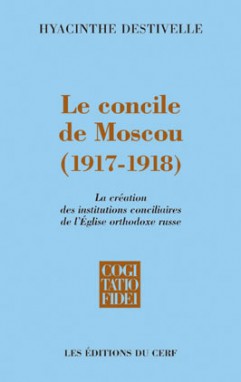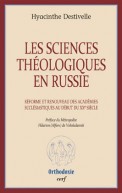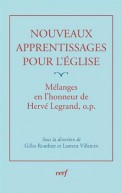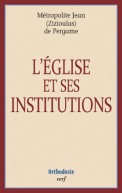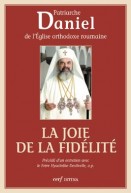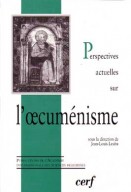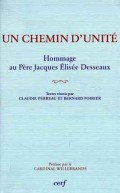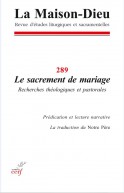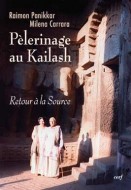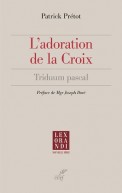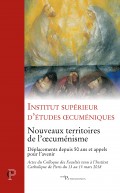Concile de Moscou 1917-1918 (Le) - CF 246
Collection Cogitatio Fidei - N° 246
512 pages - janv. 2006
52,80€
À la veille de la Révolution d’Octobre, l’Église orthodoxe russe convoque un concile qui devait marquer durablement son histoire. Ce Concile de Moscou de 1917-1918, le premier concile en Russie depuis plus de deux siècles , préparé pendant douze ans, était l’aboutissement d’un renouveau étonnant – encore largement méconnu – de la théologie orthodoxe russe au début du XXe siècle. Guidé par l’idéal russe de la « sobornost’ » (la conciliarité), il rassembla non seulement des évêques, mais aussi des centaines de prêtres et de laïcs, qui débattirent intensément du fonctionnement de l’Église et de sa mission dans le monde moderne. Comparé, non sans raison, à Vatican II, le Concile de Moscou, en se référant constamment à la tradition des Pères, voulut poser à nouveau frais des questions aussi diverses que celles du gouvernement ecclésial, de la mission, de la prédication, de la liturgie, du monachisme, de la vie paroissiale, de la formation des prêtres. De nombreux débats soulevés alors frappent aujourd’hui par leur actualité : rôle des laïcs dans l’Église, relations entre l'Église et l’État, place de la femme, unité des chrétiens. Les circonstances historiques empêchèrent le concile – dont de nombreux membres moururent martyrs – de mener à terme ses travaux, mais il parvint néanmoins à prendre plusieurs décisions qui donnèrent à l’ecclésiologie russe de la conciliarité des formes institutionnelles : rétablissement des conciles, renouveau du patriarcat, renaissance de la paroisse. Le concile permit ainsi à l’Église russe de traverser la période soviétique et posa les bases de son actuel renouveau. Aujourd’hui, il reste une référence pour l’Église orthodoxe et plus largement, pour quiconque s’intéresse à la façon dont une Église s’engage dans un processus de réforme de son gouvernement et de renouveau de sa mission, dans l’esprit d’une ecclésiologie conciliaire. Cet ouvrage propose non seulement une présentation de l’histoire et des grands enjeux du concile de Moscou de 1917-1918, mais aussi, pour la première fois dans une langue occidentale, une traduction intégrale de ses décrets.
--
On the eve of the October Revolution, the Russian Orthodox Church convened a council that was to leave an indelible mark on the Church’s history. This Council of Moscow (1917-1918), prepared twelve years in advance and the first to take place in Russia for more than two centuries, was the outcome of an astonishing revival of Russian Orthodox theology at the beginning of the 20th century, though still little-known today. Guided by the Russian ideal of ‘sobornost’ (conciliarism), it assembled not only bishops, but also hundreds of priests and laymen who took part in impassioned discussions about the functions of the Church and its mission in the modern world. Justly compared with Vatican II, the Council of Moscow aimed to take a fresh look at questions as varied as ecclesial government, mission, preaching, liturgy, monachism, parish life and the training of priests; constantly referring to the tradition of the Fathers. Today, we are struck by the modernity of many of the debates: the role of laymen in the Church, relations between the Church and the State, woman’s place in society, the unity of Christians... Historical circumstances prevented the Council, many of whose members were martyred, from finishing its work - but they did get as far as to make several decisions which gave the Russian ecclesiology of conciliarism its institutional forms: the re-establishment of councils, the revival of the patriarchate, the rebirth of the parish. The Council also enabled the Russian Church to traverse the Soviet period and lay the foundations of the current revival. Today, the Council remains a reference for the Russian Orthodox Church and, more widely, for all those interested in how the Church approaches the reform of its government and the revival of its mission in the spirit of conciliar ecclesiology. Not only does this book offer a presentation of the history and the challenges of the Council of Moscow between 1917 and 1918, it also brings us, for the first time in a European language, an unabridged translation of its decrees.
--
On the eve of the October Revolution, the Russian Orthodox Church convened a council that was to leave an indelible mark on the Church’s history. This Council of Moscow (1917-1918), prepared twelve years in advance and the first to take place in Russia for more than two centuries, was the outcome of an astonishing revival of Russian Orthodox theology at the beginning of the 20th century, though still little-known today. Guided by the Russian ideal of ‘sobornost’ (conciliarism), it assembled not only bishops, but also hundreds of priests and laymen who took part in impassioned discussions about the functions of the Church and its mission in the modern world. Justly compared with Vatican II, the Council of Moscow aimed to take a fresh look at questions as varied as ecclesial government, mission, preaching, liturgy, monachism, parish life and the training of priests; constantly referring to the tradition of the Fathers. Today, we are struck by the modernity of many of the debates: the role of laymen in the Church, relations between the Church and the State, woman’s place in society, the unity of Christians... Historical circumstances prevented the Council, many of whose members were martyred, from finishing its work - but they did get as far as to make several decisions which gave the Russian ecclesiology of conciliarism its institutional forms: the re-establishment of councils, the revival of the patriarchate, the rebirth of the parish. The Council also enabled the Russian Church to traverse the Soviet period and lay the foundations of the current revival. Today, the Council remains a reference for the Russian Orthodox Church and, more widely, for all those interested in how the Church approaches the reform of its government and the revival of its mission in the spirit of conciliar ecclesiology. Not only does this book offer a presentation of the history and the challenges of the Council of Moscow between 1917 and 1918, it also brings us, for the first time in a European language, an unabridged translation of its decrees.
- Dimensions : 135x215x214
- ISBN : 9782204076494
- Poids : 632 grammes
Avec la collaboration de : Hervé Legrand, Hilarion Alfeyev
DU MÊME AUTEUR
> VOIR TOUS LES LIVRES DE l'AUTEUR

